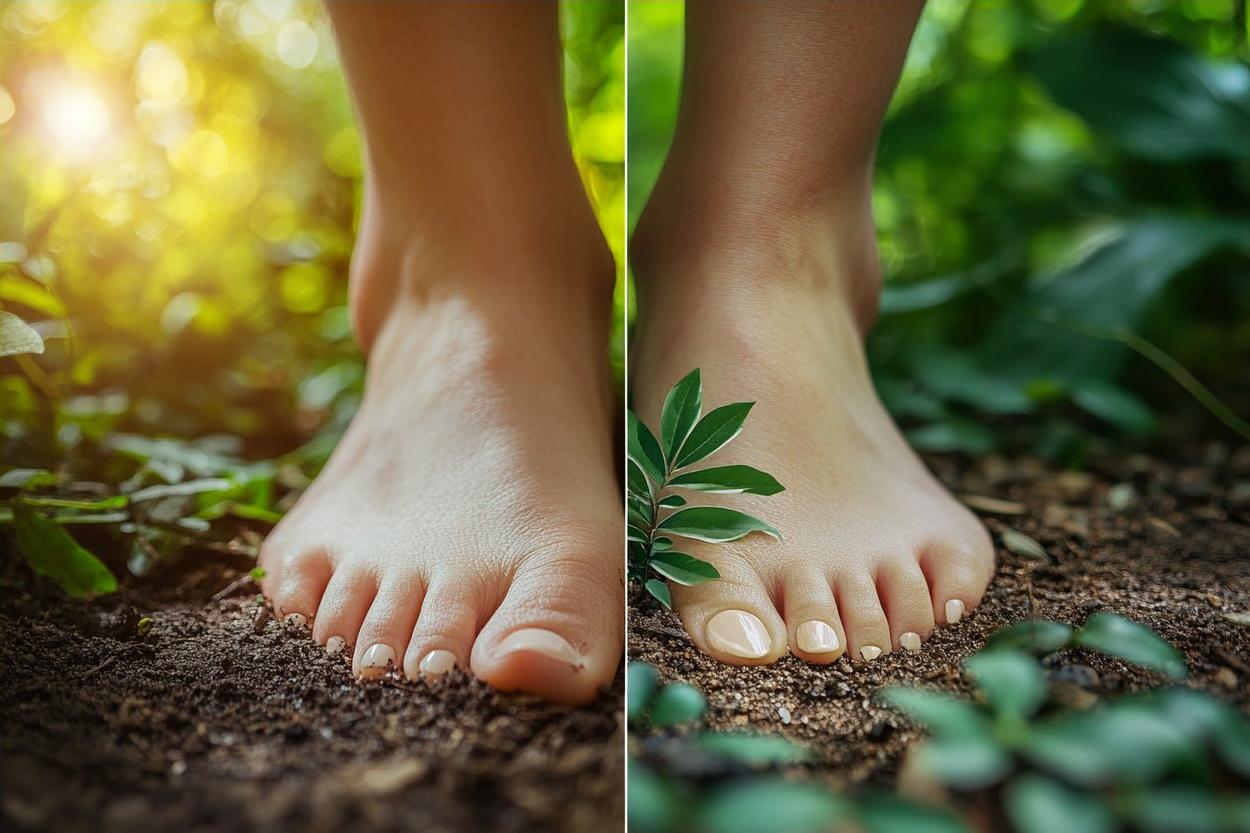The Surprising Health Benefits of Earthing: Reconnecting with Nature
Did you know that simply walking barefoot on grass or sand could significantly improve your health? This practice, known as earthing or grounding, is gaining attention in the wellness world. But what exactly is earthing, and how can it benefit our well-being? Let's explore this intriguing concept that's bridging the gap between nature and human health.

The theory behind earthing suggests that in our modern world, we’ve become increasingly disconnected from the Earth’s natural electric field. We spend most of our time indoors, wear insulating shoes, and rarely come into direct contact with the ground. This disconnection, some researchers argue, may be contributing to various health issues.
The Science Behind Earthing
While the concept of earthing might sound unconventional, there’s a growing body of scientific research exploring its potential benefits. The Earth’s surface possesses a subtle negative charge due to the constant bombardment of free electrons from atmospheric phenomena like lightning strikes. When we make direct contact with the ground, our bodies can absorb these electrons.
Studies have shown that this influx of electrons may act as natural antioxidants, helping to neutralize free radicals in our bodies. Free radicals are unstable molecules that can damage cells and contribute to inflammation and various diseases. By reducing these harmful molecules, earthing may help mitigate inflammation and oxidative stress.
Potential Health Benefits
Research into earthing has revealed several potential health benefits that are capturing the attention of health professionals and wellness enthusiasts alike:
Reduced Inflammation
One of the most significant findings in earthing research is its potential to reduce inflammation. Chronic inflammation is linked to numerous health issues, including cardiovascular disease, diabetes, and autoimmune disorders. Studies have shown that earthing can help normalize the body’s stress response and reduce markers of inflammation.
Improved Sleep Quality
Many individuals report improved sleep quality when practicing earthing. Research has indicated that grounding may help regulate cortisol, the body’s primary stress hormone. This regulation can lead to more normalized sleep-wake cycles and better overall sleep quality.
Pain Reduction
Several studies have explored earthing’s potential for pain relief. Participants in these studies reported reduced muscle tension and lower levels of chronic pain after regular grounding sessions. This effect may be due to the practice’s anti-inflammatory properties and its potential influence on the autonomic nervous system.
Cardiovascular Health
Emerging research suggests that earthing may have positive effects on cardiovascular health. Some studies have shown improvements in blood viscosity and blood flow, which could potentially reduce the risk of cardiovascular disease.
Practical Ways to Incorporate Earthing
Integrating earthing into your daily routine doesn’t have to be complicated. Here are some simple ways to get started:
-
Walk barefoot on grass, sand, or soil for at least 30 minutes a day
-
Sit or lie directly on the ground while reading or relaxing
-
Garden without gloves, allowing direct contact with the soil
-
Swim in natural bodies of water like oceans or lakes
-
Use grounding mats or sheets designed for indoor use
Grounding Wisdom: Key Insights
-
The Earth’s surface emits a subtle negative charge that can be beneficial when absorbed by the human body
-
Direct skin contact with natural surfaces like grass, sand, or soil is the most effective way to practice earthing
-
Aim for at least 30 minutes of earthing per day for potential health benefits
-
Earthing can be practiced indoors using specially designed conductive mats or sheets
-
While promising, more research is needed to fully understand the long-term effects of earthing
As we continue to navigate our increasingly digital and indoor-centric world, practices like earthing offer a simple yet potentially powerful way to reconnect with nature and enhance our health. While more research is needed to fully understand its long-term effects, the growing body of evidence suggests that this age-old practice of connecting with the Earth may hold significant benefits for our modern lives. By incorporating earthing into our daily routines, we may not only improve our physical health but also foster a deeper connection with the natural world around us.






